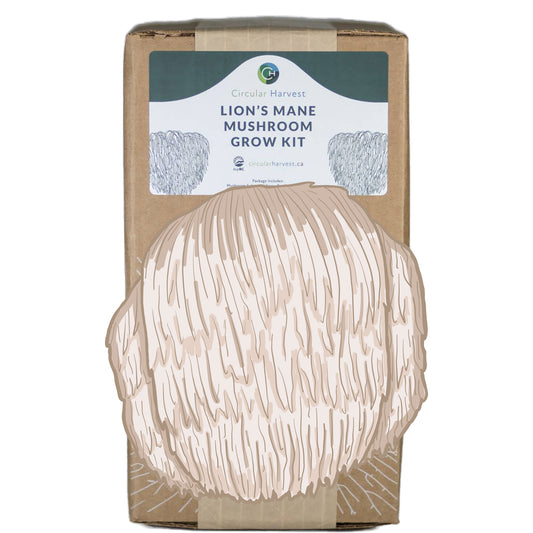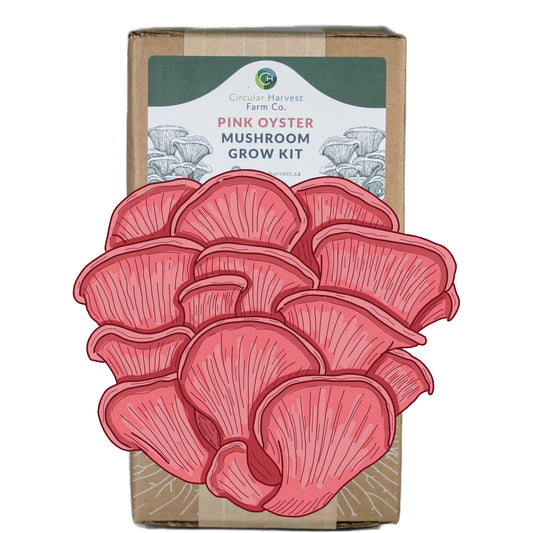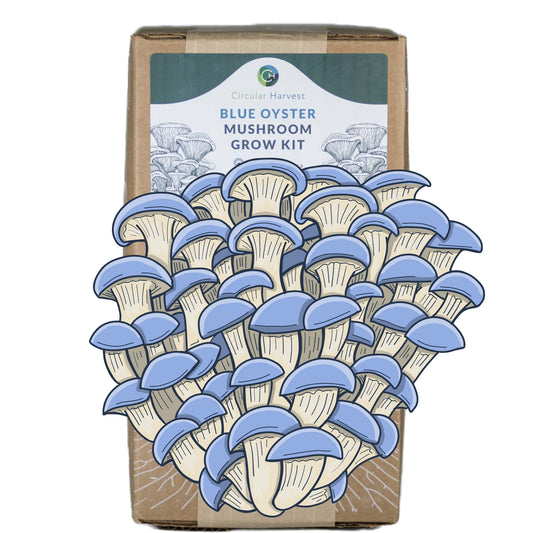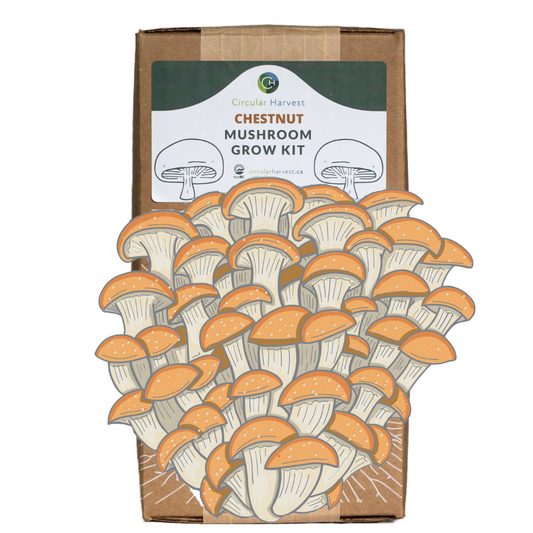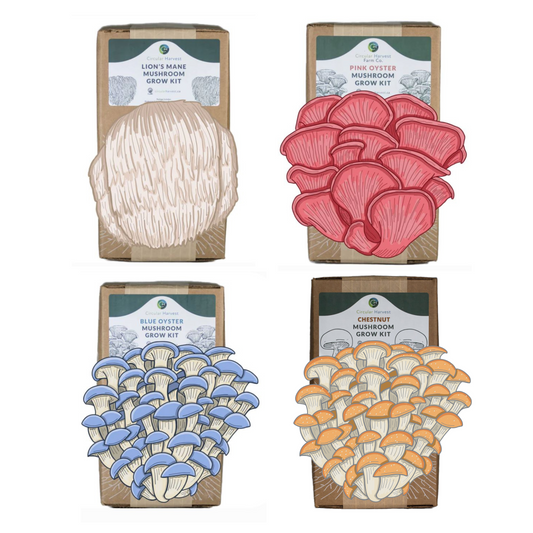In the world of natural remedies, few substances have captivated the imagination quite like Lion's Mane mushroom (Hericium erinaceus). With its distinctive appearance resembling the flowing mane of a lion, this remarkable fungus has a long history of use in traditional Chinese and Japanese medicine. In recent years, the Western world has started to take notice, primarily due to its potential cognitive-enhancing and neuroprotective properties. This blog post aims to provide a comprehensive guide to the medicinal benefits of Lion's Mane, including a detailed exploration of the studies that support these claims, an in-depth understanding of how Lion's Mane can boost cognitive function through the miraculous Nerve Growth Factor (NGF), and a comprehensive look at the bioactive compounds, polysaccharides, and terpenes. Furthermore, we'll discuss the various recommended ways to incorporate Lion's Mane into your daily routine as a supplement or in your culinary creations.
Lion's Mane and Cognitive Function:
Lion's Mane's potential to boost cognitive function is closely tied to a unique compound called Nerve Growth Factor (NGF). NGF is a vital protein that plays a central role in the development, maintenance, and repair of neurons in the brain. As we age, the brain's natural ability to produce NGF decreases, potentially leading to cognitive decline. Lion's Mane helps counteract this decline by stimulating NGF production, thereby enhancing cognitive function, memory, and overall brain health. This is why Lion's Mane is being studied for its ability to help fight Alzheimer's and dementia.
Scientific Studies on Lion's Mane Benefits:
1. Enhanced Cognitive Function: To better understand Lion's Mane's impact on cognitive function, researchers have conducted a series of studies. One notable study, published in the International Journal of Medicinal Mushrooms in 2018, examined the effects of Lion's Mane extract on mice. They tested the memory of the mice by making them run mazes which is a typical memory test when conducting experiments in this field. They fed one group of mice an oral supplement of lion's mane and the other a normal diet. After 2 months the results showed a significant improvement in memory and cognitive abilities in the mice taking lion's mane as a supplement.
Source: (International Journal of Medicinal Mushrooms)
2. NGF Stimulation: In the pursuit of understanding how Lion's Mane stimulates NGF production, a study published in the International Journal of Medicinal Mushrooms in 2013 deserves mention. This research conducted in vitro experiments and demonstrated that Lion's Mane significantly increased NGF production. This suggests that Lion's Mane's impact on brain health may indeed be attributed to its ability to stimulate NGF, which is critical for neuronal growth and repair.
Source: (International Journal of Medicinal Mushrooms)
The Magic Ingredients: Polysaccharides and Terpenes
Polysaccharides: Lion's Mane contains bioactive polysaccharides, which are complex carbohydrates known for their immunomodulatory and anti-inflammatory properties. These polysaccharides contribute to Lion's Mane's neuroprotective effects by reducing oxidative stress in the brain. In essence, they help shield neurons from damage caused by free radicals, thus supporting cognitive health.
**Free radicals are highly reactive and unstable molecules or atoms that have unpaired electrons in their outermost electron shell. Electrons usually exist in pairs, forming stable chemical bonds. When a molecule or atom has an unpaired electron, it becomes a free radical, which is inherently unstable and seeks to stabilize itself by either gaining or losing electrons. Free radicals are involved in normal physiological processes, such as immune responses and cellular signalling. However, excessive levels of free radicals can be harmful, as they can damage essential biomolecules like DNA, proteins, and lipids.**
Terpenes: Terpenes, the aromatic compounds found in various organisms, including Lion's Mane, are believed to support brain health. These molecules offer antioxidant and anti-inflammatory benefits, helping to protect brain cells from damage. Terpenes are hydrocarbons, meaning they are composed of hydrogen and carbon atoms. They have a basic structure consisting of repeating isoprene units, which are five-carbon building blocks.
Terpenes can have various beneficial effects on human health due to their interactions with biological systems in the body. These compounds work through several mechanisms to provide potential health benefits. Here's a closer look at how terpenes physically work to support human health:
1. Interaction with Receptors: Some terpenes can interact with specific receptors in the body, such as those found in the endocannabinoid system or other receptor systems. For example, terpenes like beta-caryophyllene can bind to cannabinoid receptors, influencing pain perception and inflammation.
2. Anti-Inflammatory Properties: Many terpenes possess anti-inflammatory effects. They can reduce the production of pro-inflammatory molecules, such as cytokines and prostaglandins, helping to alleviate inflammation and associated symptoms like pain and swelling.
3. Antioxidant Activity: Terpenes often exhibit antioxidant properties, which means they can neutralize harmful free radicals in the body. This can protect cells and tissues from oxidative damage and lower the risk of chronic diseases associated with oxidative stress, such as cancer and cardiovascular diseases.
4. Neuroprotective Effects: Some terpenes have neuroprotective qualities. They can help shield nerve cells from damage, promote their growth and repair, and potentially support cognitive function. For example, terpenes found in Lion's Mane mushroom stimulate the production of Nerve Growth Factor (NGF), which is crucial for the growth and maintenance of neurons.
5. Anti-Anxiety and Mood Enhancement: Certain terpenes, like linalool and limonene, have demonstrated anxiolytic (anxiety-reducing) and mood-enhancing properties. They can influence neurotransmitter systems in the brain, such as serotonin and GABA, to promote relaxation and alleviate symptoms of anxiety and depression.
6. Pain Relief: Terpenes can have analgesic effects, helping to relieve pain. Some terpenes interact with pain receptors, modulating pain signals and reducing pain perception.
7. Immune Modulation: Terpenes may influence the immune system by enhancing immune responses, making the body more effective at defending against infections. They can stimulate the production of immune cells and enhance their activity.
8. Aromatherapy and Mental Health: Terpenes are commonly used in aromatherapy, where the inhalation of their aromatic compounds can have a calming, uplifting, or soothing effect on mental health. The scents of certain terpenes can influence mood, stress levels, and cognitive function.
Lion's Mane mushroom contains a variety of terpenes, here are some of the terpenes commonly found in Lion's Mane:
1. Limonene: Limonene is a terpene with a citrusy, lemon-like aroma. It is known for its potential mood-enhancing and stress-reducing effects. In Lion's Mane, limonene may contribute to its mild, pleasant scent.
2. Beta-Caryophyllene: Beta-caryophyllene is a terpene with a spicy, woody aroma. It is notable for its interaction with cannabinoid receptors, particularly CB2 receptors. This terpene may contribute to the potential anti-inflammatory and analgesic properties of Lion's Mane.
3. Nerolidol: Nerolidol has a sweet, floral aroma and is known for its sedative and calming effects. It may contribute to the relaxation-inducing properties that some people associate with Lion's Mane.
4. Geraniol: Geraniol has a sweet, rose-like aroma. It has antioxidant properties and may contribute to the overall health benefits of Lion's Mane, such as its potential neuroprotective effects.
How to Take Lion's Mane as a Supplement:
1. Capsules or Tablets: Lion's Mane supplements are available in capsule or tablet form. These options provide a convenient and standardized dosage, making them a popular choice among users.
2. Tinctures: Liquid extracts, or tinctures, offer a more customizable dosage. Users can adjust the amount of Lion's Mane extract they consume, making it an attractive option for those seeking precise control over their supplementation. Purchase Lion's Mane Tincture
3. Powders: Lion's Mane powder is versatile and can be mixed with beverages, smoothies, or food. This form provides flexibility in incorporating Lion's Mane into your daily routine. Purchase Lion's Mane Powder
4. Teas: Lion's Mane tea is a soothing way to enjoy the benefits of this mushroom. Steeping Lion's Mane slices in hot water releases its bioactive compounds, making it a calming and therapeutic beverage.
5. Cooking with Lion's Mane: For those who enjoy culinary adventures, fresh or dried Lion's Mane can be integrated into your cooking. Create delectable dishes like stir-fries, soups, or even Lion's Mane 'Crab' cakes that you can purchase here.
Common Dosage:
A typical dosage range for Lion's Mane is approximately 1 to 3 grams (1000 to 3000 milligrams) per day for powders or 1-3 mL per day for tinctures. Some people may choose to take it in divided doses throughout the day or all at once. However, if you are pregnant or expecting, do not take a tincture since it is made with alcohol. None of this article is health advice, always consult a health care professional before taking a supplement.
Conclusion:
Lion's Mane mushroom is a natural treasure, offering substantial potential for cognitive enhancement and brain health. Research into this fascinating fungus is ongoing, and while many have experienced its benefits firsthand, it's crucial to approach supplementation with care. Consulting a healthcare professional before introducing any new supplement into your routine is advisable, especially if you have underlying health conditions or are taking other medications.
In this extensive guide, we've explored the depth of Lion's Mane's medicinal benefits, its ability to stimulate NGF, some studies that support its claims, and the role of polysaccharides and terpenes. We've also discussed the various recommended ways to incorporate Lion's Mane into your daily life, providing you with the tools to harness the potential of this incredible natural remedy. Whether you choose capsules, powders, or culinary creations, Lion's Mane may just be the key to unlocking your cognitive potential and embarking on a journey to a healthier, happier you.


